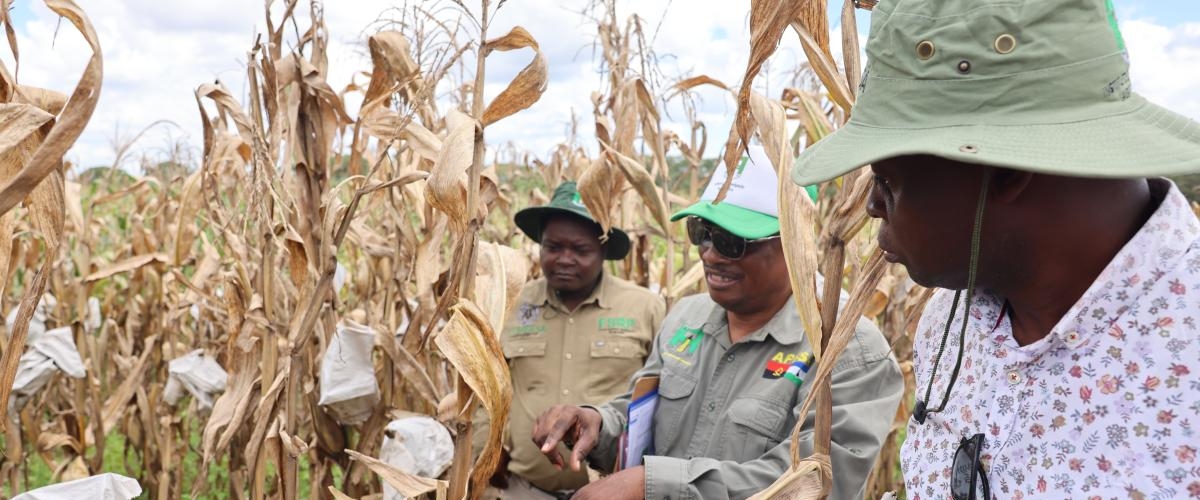
Soil acidity poses a significant challenge for maize farmers, affecting 30-40% of the world's arable land. This issue can lead to yield losses of up to 70% in potentially arable areas, with many African nations feeling the impact. While farmers often turn to lime and other agronomic practices to combat soil acidity, these solutions can be costly and may harm the environment over time. Moreover, liming primarily affects topsoil, leaving subsoils still vulnerable to acidity.
To address this problem, a recent study titled “Low pH adaptation of tropical exotic acid tolerance yellow maize donor lines in sub‐tropical breeding programs” that was conducted in Angola and Zimbabwe, was published in the Euphytica international journal of plant breeding. The research was led by Dibanzilua Nguinamau, a maize breeder from Angola, working with Casper Kamutando, Cosmos Magosokosho, João Saraiva, Angeline van Biljon, and Maryke Labuschagne.
Dr. Nguinamau is currently working on a Research and Development (R&D) sub-project under the Agricultural Productivity Programme for Southern Africa (APPSA), a six-year initiative funded by the World Bank. This program is implemented in Angola and Lesotho and overseen by the Centre for Coordination of Agricultural Research and Development for Southern Africa (CCARDESA).
In their study, the researchers crossed four yellow maize donor lines that are tolerant to acid soils, sourced from the International Maize and Wheat Improvement Centre (CIMMYT). The goal was to develop maize varieties that can thrive in low pH conditions, ultimately improving productivity for farmers in sub-tropical regions. This approach represents a sustainable solution to enhance maize yields and support food security in areas affected by soil acidity.
The research demonstrated a significant impact of both line and line x tester effects on grain yield performance under acid and non-acid soil conditions. Two donor lines, CY3 and CY1, exhibited the highest positive General Combining Ability (GCA) effects for grain yield. Notably, the crosses involving these two lines showed superior yielding ability and stability in both acidic and well-managed soil environments. In addition, crosses involving the acid tolerant donor lines mostly flowered earlier than the commercial checks.
The conclusion drawn from this study is that tropically adapted exotic yellow maize donor lines, known for their acid tolerance, hold considerable potential for enhancing maize productivity in sub-tropical regions, effectively addressing challenges posed by low-pH soils.
The full paper can be accessed online at https://doi.org/10.1007/s10681-024-03367-6.





